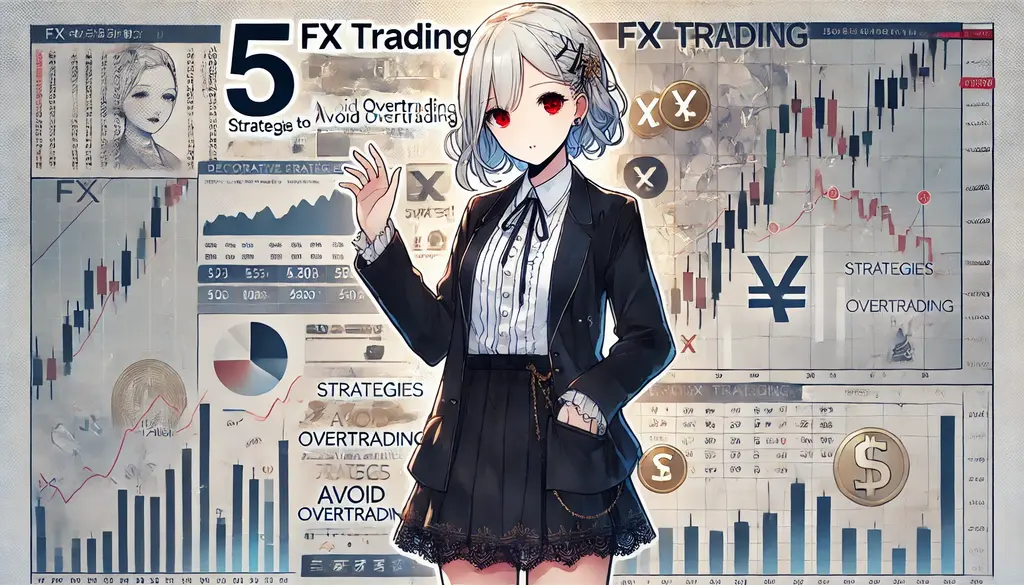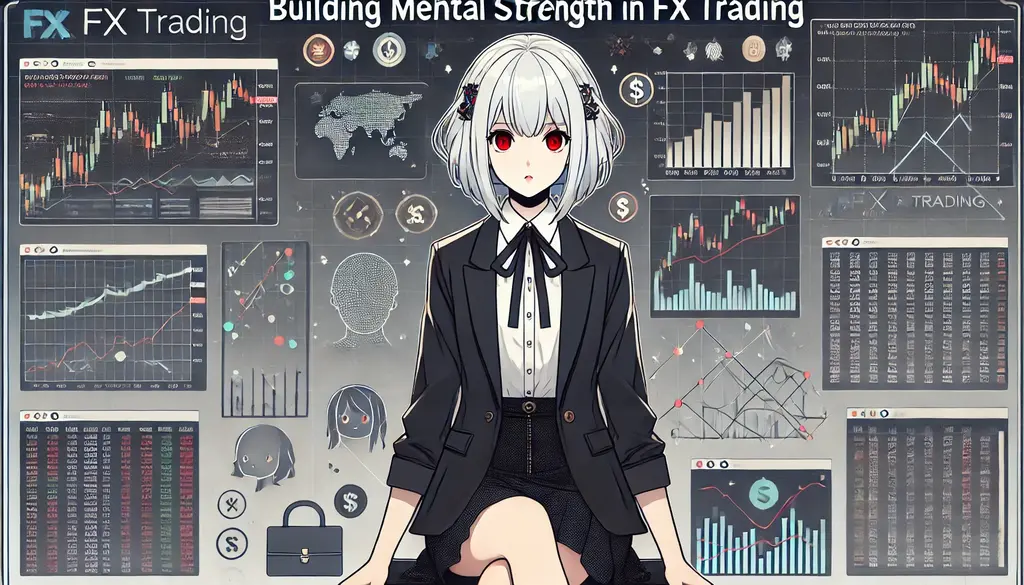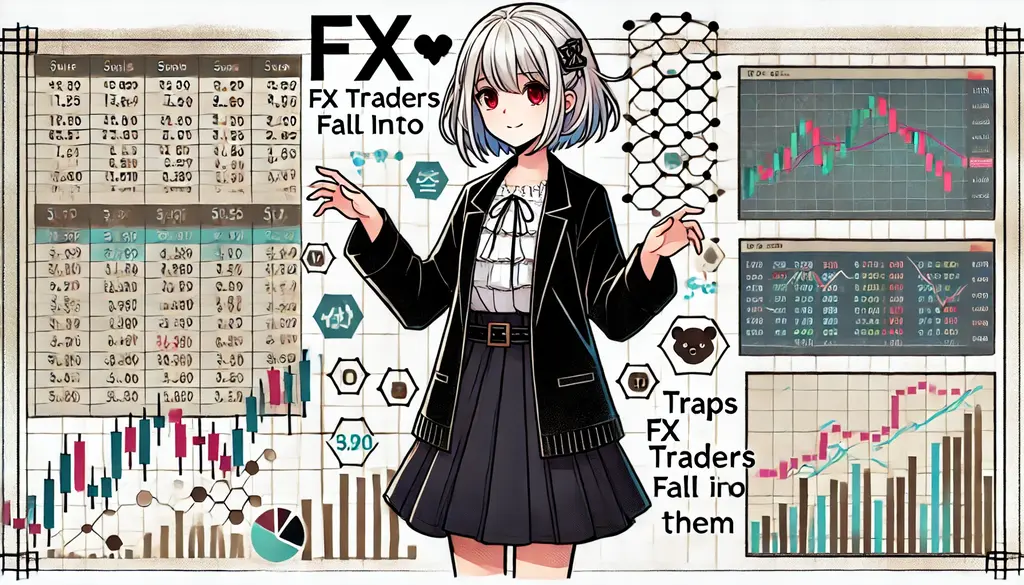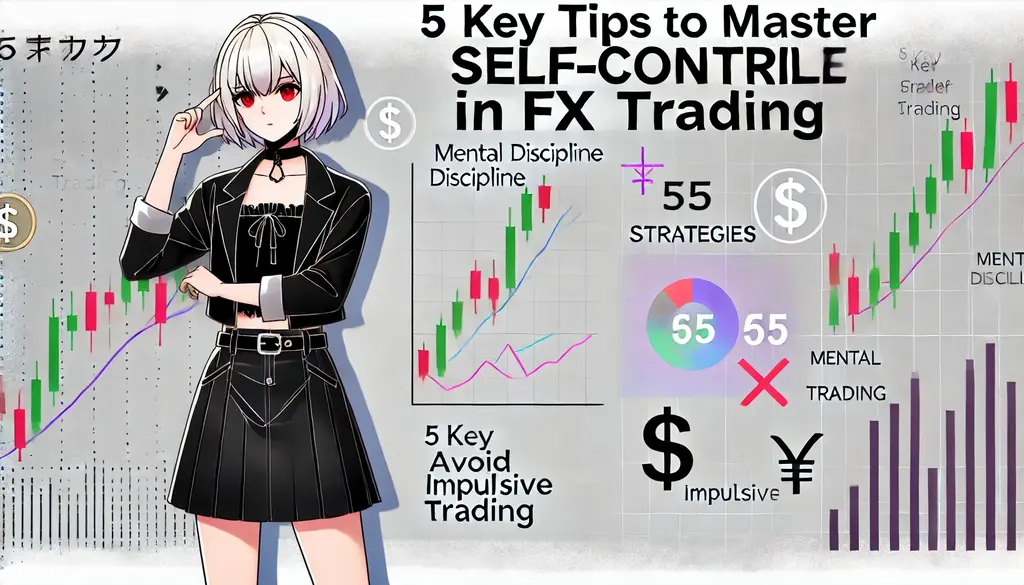FX trading offers the potential for significant returns, but excessive trading also brings the risk of losing capital. In particular, the psychological condition known as “Always-In Syndrome” can impair a trader’s sound judgment and lead to major losses. In this blog post, we’ll examine the symptoms and causes of Always-In Syndrome, and we’ll provide detailed countermeasures. You’ll gain insight into how to avoid this condition and achieve more stable profits.
- 1 1. What Is Always-In Syndrome? Common Traits and Symptoms Among FX Traders
- 2 2. What Kind of Traders and Environments Tend to Trigger Always-In Syndrome?
- 3 3. What Happens if Always-In Syndrome Persists? The Risk of Growing Losses
- 4 4. 5 Measures to Overcome Always-In Syndrome
- 5 5. Mindset and Methods to Prevent Always-In Syndrome
- 6 Conclusion
- 7 Frequently Asked Questions
- 8 References
1. What Is Always-In Syndrome? Common Traits and Symptoms Among FX Traders
“Always-In Syndrome” refers to the psychological state in FX and other investments where a trader feels restless unless they are always holding a position. This condition can affect anyone — from beginners to advanced traders.
Main Traits of Always-In Syndrome
Constant trading activity
To achieve steady results in investing, strategy is essential. But with Always-In Syndrome, you’ll find yourself making trades without justification and repeatedly entering positions.High-frequency trading
Trades may be made continuously throughout the day — sometimes dozens to hundreds of times. This increases unnecessary costs and losses, ultimately degrading performance.The mindset of “I must recover the loss”
After a losing trade, you may try to recover the loss by taking unreasonable positions, which can lead to even bigger losses and mounting psychological stress.Psychological impact
Typical symptoms include the urge to keep watching charts, or being overly preoccupied with unrealized profit and loss — to the extent it starts affecting your daily life. In such a state, you might lose focus at work, so caution is required.
Symptoms You Should Be Aware Of
To determine whether you have Always-In Syndrome, it’s important to keep an eye out for the following symptoms:
Trading unconsciously
Even without deliberate intent, you may find yourself making trades “automatically.”Over-reacting to results
You might swing wildly in response to small wins or losses, allowing emotions to influence your trades.Focusing on the “fun” of trading
You may feel trading is “fun” even though you’re not actually making progress — the psychology kicks in and clouds judgment.
Always-In Syndrome is a psychological state that must be overcome if you want to achieve stable profits. Traders must understand the risks this mindset brings, and carefully reassess their own trading style.

2. What Kind of Traders and Environments Tend to Trigger Always-In Syndrome?
Always-In Syndrome is more likely to be triggered by certain personality traits and environmental factors. Here, we will examine the characteristics of traders who are susceptible — and how their environment influences them.
1. Tendency toward over-confidence
Traders with strong over-confidence tend to ignore risk in their pursuit of profit. They often trust their own judgement to the extent that they don’t heed others’ opinions or advice. As a result, holding positions becomes a habit and even continuous losses don’t prompt corrective action.
2. Preoccupation with short-term gains
Traders focused on short-term results are also more prone to Always-In Syndrome. In their desire for momentary profit, they habitually take on too many positions and repeat trading without calm judgment. Being swayed by temporary success while ignoring sudden market swings is dangerous.
3. Overload of information environment
When a trader is immersed in information overload — whether from social media or forums — making accurate judgments becomes difficult. Traders particularly vulnerable in this setting tend to switch their positions frequently or take new positions needlessly. The result: losing the ability to stay calm becomes common.
4. High-stress life environment
A stressful daily environment can be a contributing factor to Always-In Syndrome. Life stress may harm your mental health and cause you to lose composure during trades. Problems at work or in human relationships affect your emotional reactions to trades, increasing the risk of erratic thinking.
5. The impact of isolation
Feeling isolated while trading is also a factor in Always-In Syndrome. Traders who avoid interaction tend to make decisions alone and are more likely to act emotionally. In such a solitary environment, opportunities to notice one’s own mistakes diminish, and the risk of falling into Always-In Syndrome grows.
A trader’s personality and environment are major elements in triggering Always-In Syndrome. By examining your own personality and improving your environment, you can reduce the risk of falling into this condition.

3. What Happens if Always-In Syndrome Persists? The Risk of Growing Losses
If Always-In Syndrome continues, traders will face very difficult circumstances. In this state, not only will unnecessary trades increase, but mistakes caused by emotion will become more frequent — as a result, asset security may be compromised. In this section, we’ll take a closer look at the risks that Always-In Syndrome brings.
1. Rising transaction costs
The most obvious effect of Always-In Syndrome is the increase in costs associated with frequent trading. By making excessive trades, spreads and fees accumulate, eventually squeezing profits. For example, if you make many trades in a day, the profit from a single successful trade may be eaten up by several rounds of fees. Consequently, instead of earning profits, the burden of costs may grow larger.
2. Emotional trading
Traders suffering from Always-In Syndrome increasingly make decisions without calm thinking. Emotions take the lead, prompting baseless entries or trades aimed at recovering losses. Repeating this pattern causes traders to lose the business mindset — and ultimately, the risk of loss expansion becomes greater.
3. Ignoring trading rules
Traders afflicted with this condition tend to neglect the trading rules they set for themselves. The rules designed to maximize profit are sometimes ignored out of urgency. As a result, unnecessary risk is invited, and in the long term this may deal serious damage to asset management.
4. Decline in performance
When symptoms of Always-In Syndrome continue, the reliability of one’s trading method is lost and performance declines. As win-rates drop and consecutive losses pile up, capital steadily decreases. In this scenario, traders often sink deeper into frustration, leading to a vicious cycle of expanding losses.
5. Failure in fund management
Due to Always-In Syndrome, traders tend to underestimate the importance of fund management. Normally, managing funds is a basic tenet of successful investing, but this condition blurs the sense of proper risk management. As a result, large losses may occur and the trader’s funds may be depleted.
As you can see, the risks arising from a persistent case of Always-In Syndrome span multiple areas. Traders must recognize this state early and take appropriate measures. Reflect on yourself—and act to protect your profits.

4. 5 Measures to Overcome Always-In Syndrome
Always-In Syndrome is the psychological and financial damage caused by repeatedly entering excessive trades. To overcome this condition, it’s important to implement solid countermeasures. Below are five concrete steps you can put into practice.
1. Review Your Trading Hours
By properly limiting the time you spend trading, you can prevent unnecessary entries. Especially when you keep staring at charts despite not meeting entry conditions, you are more likely to be driven by impatience. Plan a schedule in advance and allocate time to other activities as well — this helps reduce psychological burden.
2. Take Regular Breaks
If you feel mentally unstable during trading, it’s effective to take a break. Resting not only refreshes your mindset but also gives you a chance to review your trading style and strategy. Many successful traders monitor their mental state and choose to refrain from trading when market conditions don’t feel right.
3. Use a Trading Journal
A trading journal is an extremely useful tool for encouraging self-reflection. By recording your trades, you can clarify when and under what circumstances you’re prone to Always-In Syndrome. Specifically, if you note not only the trade details, but also your mindset, background, and exit thinking, you can use the journal to improve future trades.
4. Adopt a Long-Term Perspective
Short-term trading tends to raise frequency of entries and cause problems. By shifting to longer-term trading, you can prepare more fully for each trade and reduce the risk of being influenced by Always-In Syndrome. This allows for more stable earnings over time.
5. Practice Effective Fund Management
Withdrawing a fixed amount from your trading account can help control the urge to trade emotionally. The more funds you leave idle in the account, the more you may fall into repeated trading. By reducing available capital, you can approach trading more calmly — and once you’ve secured profits, your sense of security increases.
By integrating these measures, you can overcome Always-In Syndrome and realize higher-quality trading.

5. Mindset and Methods to Prevent Always-In Syndrome
To prevent Always-In Syndrome, your daily actions and mindset are important. Below are some prevention strategies that are easy to implement.
Clarify Your Trading Rules
To suppress Always-In Syndrome, the first step is to establish clear rules for your trading. Define your entry and exit timing, and set standards for fund management. With your method established, you are less likely to be swept away by emotions, and unpredictable trades can be reduced.
Take a Break from the Charts
Excessive chart-watching during trading may lead you to trade impulsively out of mental tension or anxiety. Decide in advance when you will check charts, and avoid checking outside that time. This helps you avoid being swayed by momentary price moves and enables calmer judgment.
Utilize a Trading Journal
Using a trading journal allows you to objectively review your own trades. Recording the date and time of trades, currency pairs, and your state of mind helps identify situations where you’re prone to Always-In Syndrome. By reviewing this journal periodically, you’ll deepen self-understanding and reduce emotionally influenced trades.
Utilize External Support
If you find it difficult to manage your trades alone, consider support from specialists or trading consultants. By incorporating a third-party viewpoint, you can remove your own biases and make calmer decisions. Using external support like this can improve the quality of your trading.
Schedule Regular “Refresh” Time
Trading demands intense concentration, so adequate rest is essential. By setting aside regular time to refresh, you can maintain your mental clarity and judgment. Taking a walk or immersing yourself in a hobby helps restore balance to your mind and body, helping prevent Always-In Syndrome.
Leverage a Community
Occasionally consulting with other traders or joining a community can provide new perspectives. Exchanging information with peers helps deepen your understanding of your own issues and supports finding solutions. Avoiding isolation and cultivating a mindset of growing together contributes to the prevention of Always-In Syndrome.
By practicing these mindsets and specific methods, you can reduce the risk of Always-In Syndrome and realize better trading.

Conclusion
Always-In Syndrome is a problem unique to FX traders — driven by high-frequency trading and emotion-driven transactions it causes mental stress and financial losses. Overcoming this condition requires proper setting of trading hours, regular breaks, utilisation of a trading journal, maintaining a long-term perspective, and effective fund management. As preventive measures, you should also define clear trading rules, limit chart-watching appropriately, use a trading journal, engage external support, schedule regular refresh time, and participate in a community of traders. By executing these measures comprehensively, you can minimise the risk of Always-In Syndrome. Traders should act on these steps as a whole and aim to improve both their mental health and trading performance.
Frequently Asked Questions
What exactly is Always-In Syndrome?
Always-In Syndrome refers to the psychological state in FX or investing where a trader feels unsettled unless holding a position. In this state, they repeatedly make trades without justification or frequently open new positions, which may lead to losses. They may also feel compelled to keep looking at charts, and daily life may be affected.
What kind of people are prone to Always-In Syndrome?
Personality or environmental factors such as strong over-confidence, obsession with short-term gains, excessive information environment, a stressful lifestyle, or feeling isolated raise the risk of Always-In Syndrome. These factors tend to lead to trading without calm judgement.
What risks arise if Always-In Syndrome continues?
If Always-In Syndrome continues, you’ll face increased transaction costs, emotional trading, ignoring of trading rules, performance decline, and failure in fund management. As the condition progresses, the security of your assets could be significantly threatened.
How can I prevent Always-In Syndrome?
You can reduce the risk of Always-In Syndrome by combining measures such as clarifying your trading rules, limiting chart-watching, using a trading journal, utilising external support, taking regular breaks, and engaging with trader communities. It’s important to practice these preventive measures.
References
FX初心者はしばしば、「ポジポジ病」に陥りがちです。「ポジポジ病」とは、トレーダーが常に取引をしてしまう状態のことです。…
FXで失敗する人に共通する5つの事例とその回避策【初心者必見】のページです。SMBC日興証券では、お客さまの多様なニーズ…










